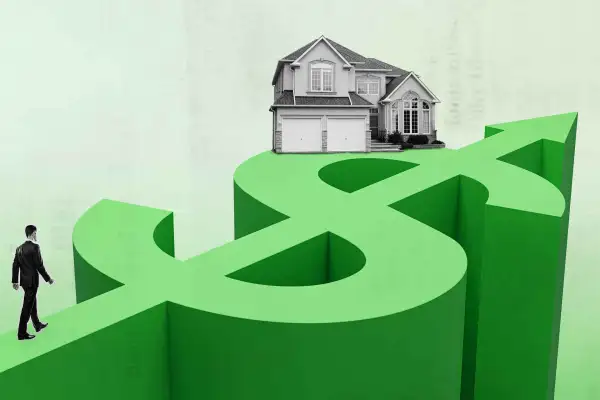Here's Who Benefited the Most From Homeownership Over the Past 10 Years

Homeownership has long been considered one of the best paths to building long-term wealth. A home provides safety, a tappable source of income and value that can be passed on to future generations.
Over the 10-year period between 2012 and 2022, the value of a median-priced home in the U.S. increased by $190,000, or a gain of $19,000 per year on average, according to a new study by the National Association of Realtors (NAR). A typical homeowner's net worth is 40 times higher than that of a renter, NAR says.
“This analysis shows how homeownership can be a catalyst for building wealth for people from all walks of life,” said Lawrence Yun, chief economist at NAR, in a press release.
But this route to wealth is not necessarily fair or evenly distributed: Some owners see their home values increase much faster than others, while certain groups are much more likely than others to own houses in the first place.
Even though the report showed homeowner wealth increased across the board, there were significant differences among homeowners of different income levels:
- Low-income households, defined as those that earn less than 80% of the area median income, gained $98,900 in net worth from home appreciation alone over the past 10 years.
- Middle-income households — those that earned more than 80% and less than 200% of the area median income — gained $122,100 in wealth over the same period.
- High-income households — earning more than 200% of the area median income — gained $150,800.
The report also points out a big disparity among different ethnicities when it comes to the homeownership rate:
- The Black homeownership rate was 44.9% by the end of 2022.
- The White homeownership rate was 74.5%.
- The Asian American homeownership rate was 61.9%.
- The Hispanic-American homeownership rate was 48.5%.
The large discrepancies in ownership rates point out the barriers that some racial/ethnic groups face when it comes to building wealth and being able to pass those gains on to their children. What's more, though all ethnic groups saw an increase in ownership during the decade ending in 2022, growth among Black households lagged behind that of the other groups.
Net worth increases by race over the last 10 years
Over the last decade, homeowners gained an average of more than $100,000 in home value across all racial groups considered in the study. Here's the breakdown:
- Asian - $239,430 in gained value
- Hispanic - $162,450 in gained value
- White - $138,430 in gained value
- Black - $115,430 in gained value
Cities with the largest wealth gains for middle-income homeowners
Not surprisingly, California cities occupy the top spots when it comes to the biggest increases in home value for middle-income families over the last decade:
- San Jose, California - $642,760 in gained value
- Santa Cruz, California - $527,790 in gained value
- San Francisco, California - $444,530 in gained value
- Salinas, California - $407,880 in gained value
- Santa Maria, California - $370,190 in gained value
Why it matters
The ability to build wealth is not only an important part of providing financial stability but also for the economy as a whole. Home equity and retirement accounts make up 60% of a household’s net worth, according to the U.S. Census Bureau and the NAR report.
Over the past three years alone, homeowners have gained hundreds of thousands of dollars in equity as home values skyrocketed during the pandemic — wealth that can be tapped with a home equity loan or line of credit if needed for an emergency.
Homeownership can also help establish better financial habits as well. The monthly payments made toward your mortgage function as an automatic savings mechanism. Each time you pay, your debt goes down and you gain more equity in your home. This is wealth that grows over time and can eventually be used in a number of different ways.
Home Sellers Feel Trapped By Their Low Mortgage Rate
People Aren’t Buying Vacation Homes — And That’s a Bad Sign for the Housing Market

